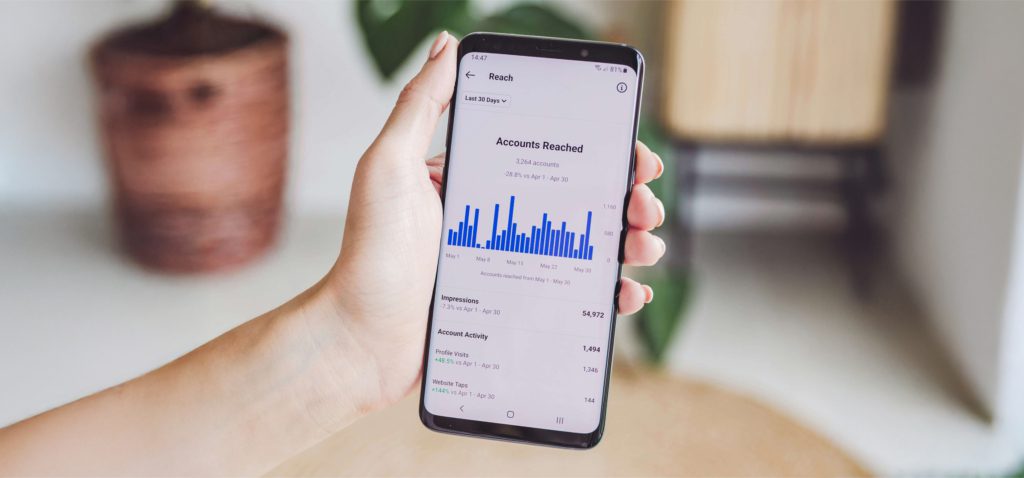In today’s digital marketing landscape, it can feel like you must pick a side when thinking about organic and paid search.
Both are key strategies that can have a significant impact on your ROI, but you will often see them pitted against each other across the web.
However, what if we told you that you could take your digital marketing strategy to the next level by using both organic and paid search?
Continue reading to learn more about each strategy, and how they can work together…
What is organic search?
Organic search is the practice of using SEO and content strategy to improve a website’s presence on specific search engine results pages (or SERPs)
To move web pages up the SERPs and gain those coveted positions on page one, marketers will focus their efforts on the following:
- Creating high-quality and engaging content in line with Google’s E-E-A-T guidelines
- Targeting keywords that match a user’s search intent
- Establishing themselves as experts by creating topic clusters
- Ensuring URLs are short and easy to read
- Working on image SEO
- Making sure content is accessible
- Optimising meta descriptions to make them more compelling
This is what the term ‘organic’ refers to – as marketers are dedicating time and resources to improve web rankings without the use of paid tactics.
Before embarking on an organic search strategy or working with a dedicated agency like Skittle Digital, it’s worth weighing up the pros and cons of using this solution. We’ve summarised them below:
Benefits of organic search
- Builds credibility and trust
- Improves the user experience
- Supports your content and SEO strategies
- Boosts audience reach
- Accurately addresses user intent
- Delivers long-lasting results
- Provides actionable insights
Disadvantages of organic search
- It can take time to see results
- Can be time-consuming without adequate resource
- Requires regular monitoring as search algorithms roll out updates
- Strategies need tweaking to stay ahead of competitors
What is paid search?
The term ‘paid search’ refers to a digital marketing strategy whereby marketers and businesses promote their brands through paid placements.
These ads are often referred to as pay-per-click advertisements (PPC for short), and they effectively bump your ad up to the top of the search engine results page, so it sits above the organic results and users see it first.
You can easily recognise paid ads as they will have ‘ad’ or ‘sponsored’ alongside their ad.
Brands that use paid search as part of their digital marketing strategy will typically focus on the following:
- Keyword research and selection to identify relevant terms that potential customers use
- Determining the optimal bid amount for each keyword to maximise clicks
- Optimising targeting and audience segmentation to deliver personalised and relevant ads
- Creating compelling and creative ad copy to appeal to their desired audience
- Tracking campaign performance metrics to evaluate effectiveness
Again, before you consider taking on a paid search strategy or asking what a dedicated agency can do for you, it’s worth knowing the pros and cons of this marketing channel:
Benefits of paid search
- Boosts visibility instantly
- Targets required audience immediately
- Generates qualified leads more quickly
- Only incurs a cost when users click
- Can be scaled up or down as required
- Allows for A/B testing
- Provides actionable insights and measurable ROI
Disadvantages of paid search
- Ad fatigue can happen when users are overexposed
- High competition in bidding wars
- Can be seen as less trustworthy by users
- Susceptible to click fraud – where competitors or bots click on ads maliciously
- Requires a steep learning curve for newcomers
Why organic and paid search work better together
Both organic and paid search can have a significant impact on your business.
However, you don’t have to choose – in fact, both channels can work together cohesively to double the marketing benefit you experience. Here’s how…
Quicker results
Organic search is known for its long-term results, but it can take time to see them.
You could utilise paid search alongside your organic strategy to promote your brand instantly and increase your brand awareness until the SEO results start coming in.
Comprehensive keyword strategy
You can combine and cross-reference high-performing keywords from both your organic and paid strategies to create an in-depth overview.
You can then go on to optimise your content to include these targeted keywords.
Enhanced audience insights
Once you have gathered information about your target audience through your organic efforts, you can utilise these insights in your paid search tactics – and vice versa.
Maximised SERP presence
Using an integrated approach can help you maximise your presence on the search engine results page. Those who rank organically while running a PPC ad are essentially doubling their visibility on results pages.
Improved brand recognition
By appearing in multiple places in SERPs, users will be able to recall your brand more easily as they are seeing it consistently while they search online. As a result, you will benefit from leaving a lasting impression with prospective customers.
Reduced time and budget
Using a combination of both paid and organic search allows you to make the most of your budget and time.
For example, by using the same target keywords across both your paid and organic campaigns, you reduce the need to carry out multiple keyword research sessions.
Final thoughts
While you can use both organic and paid search separately, learning how to use them together can give your campaigns a powerful advantage and set your digital marketing campaign apart from the rest.
Need help with your organic and paid search strategies?
Now that you know how well organic and paid search work together, if you would like some help implementing them into your digital marketing strategy, get in touch to see how we can help.
Alternatively, book in for a Free Acquisitions Workshop, where you can gain invaluable insights into your current strategy from our marketing experts, free resources, and an action plan tailored to your needs.







